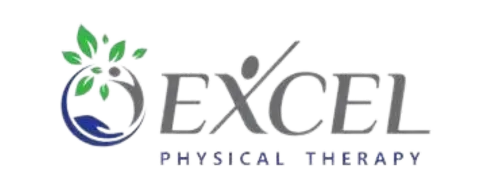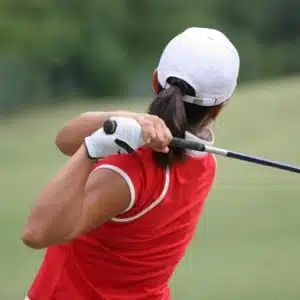Whether you just started hitting the links or have been playing golf for years, understanding the variety of injuries that can result from playing golf will help your game, as well as your overall wellness.
For beginners injuries can often happen because of poor body mechanics. While many people may think it’s simple to pick up a set of clubs and hit the links, a bad golf swing can lead to years of bad habits (and bad scores).
If you’re new to the sport, consider taking some lessons with a teaching pro — who can ensure that you learn the game with proper form. If you’ve tried playing and have felt pain during your swing, consider consulting with a specialized physical therapist, whose musculoskeletal expertise can reduce pain and improve your game.
More seasoned players can experience a variety of pain and problems. A Harvard Medical School Study underscores overuse as the key reason golfers have back, shoulder and elbow problems, unsurprising when you consider how many times a golfer swings his clubs during a round of 18.
Many golfers experience back pain due to a lack of mobility in the hips and lower back, and weakness in the lower back and core muscles. Golfers can seek help from a specialized physical therapist if they experience back pain, especially with bending or twisting; excessive back stiffness during or after playing golf; muscle spasms; or pain or weakness in the legs.
Golfers are also prone to medical or lateral epicondylitis, also known as tennis elbow or golfer’s elbow. While the pain may be felt in the elbow it is often a cause of poor swing mechanics or weak back muscles. Tightness in the back or improper form can lead to compensation, putting more strain on the elbow joints. If the golfer feels pain in the elbow, especially while gripping a club, or a loss of grip or wrist strength, it’s time to consult a physical therapist about the problem.
Shoulder injuries are less common for the casual player but are one of the most common injuries for professionals. Excessive force on the joint can cause tendinopathies, rotator cuff tears and labrum tears. Golfers should be aware of pain in and around the shoulder joint and arm, clicking and popping in the joint with movement, and shoulder weakness that makes it difficult to move. Such symptoms are signs to seek medical treatment, as such tears can only get worse with further activity.
Finally, all players, especially those that are retired or nearing retirement age, should be aware of arthritic pain in all of their joints. Such knee and hip pain may cause golfers to compensate and adjust their swing mechanics without even realizing it. Arthritis shouldn’t stop you from playing golf; in fact, playing golf and being active can actually reduce arthritic symptoms. That said, if you do suffer from arthritis, it’s a good idea to have your swing evaluated to make sure that your swing mechanics haven’t changed for the worse as you’ve aged.
There are a variety of things a golfer can do to reduce her chance of injury. For example invest in a walking cart for your clubs if you usually walk the course: Studies have shown that you are twice as likely to injure your back if you carry your clubs.
Having a more efficient swing can also reduce injury. An efficient swing will be different for each player, depending on his body type and strength, but it can be improved by working on strength, flexibility and muscle control.
Several stretches and exercises can help players to improve their game and reduce pain — and the chance of injury. A proper warm-up should be dynamic increasing your heart rate and taking your joints through full ranges of motion. It is recommended to start with squats, lunges, trunk rotations and arm circles, then gradually working from half-speed swings with short irons to full swings with a driver.
We suggest a variety of exercises to do off the course that will help to strengthen your core and reduce injuries. These can be done on your day off or before hitting the links.



